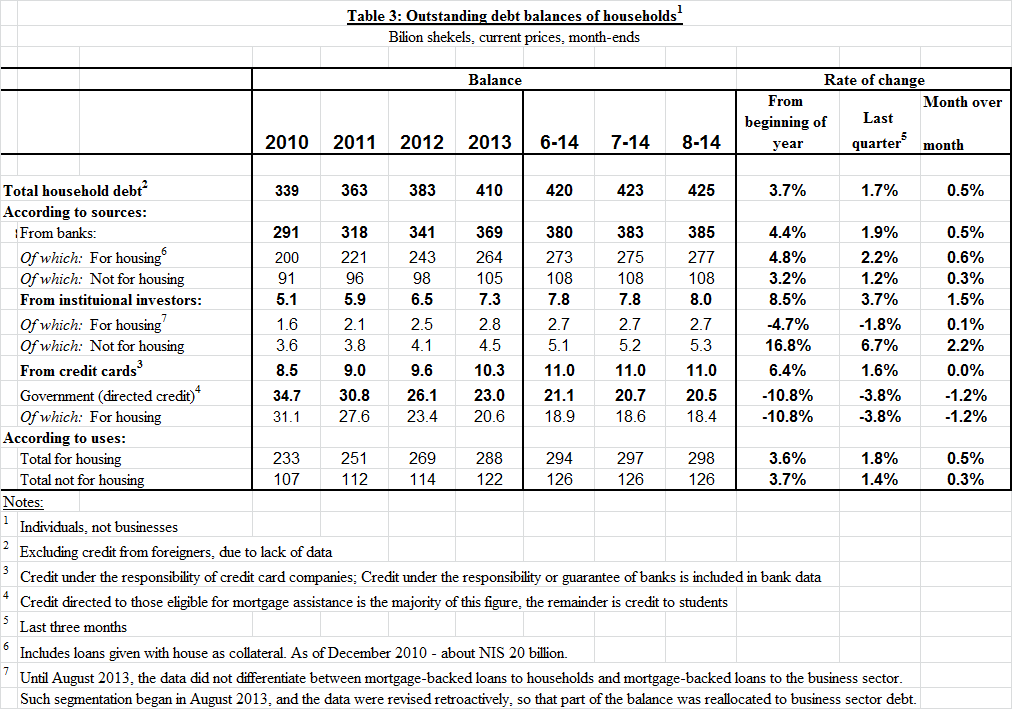Business sector debt increased by about 1.4 percent to around NIS 781 billion in August. Household debt increased by about NIS 1.9 billion (0.5 percent) to around NIS 425 billion at the end of the month.
The business sector’s outstanding debt
- The total outstanding debt of the business sector increased by about NIS 10.6 billion (1.4 percent) to around NIS 781 billion in August. The increased derived mostly from the depreciation of the shekel against the dollar by about 4.1 percent, which increased the shekel value of debt indexed or denominated in foreign currency, and from net raising of debt that resulted from taking out bank and nonbank loans and the issue of tradable bonds in Israel totaling about NIS 2.9 billion. The increase was partly offset by the repayment of loans from abroad.
- In September, the business sector (excluding banks and insurance companies) issued about NIS 4.1 billion in bonds, most of which were tradable bonds. This was higher than the average amount of issuances over the first eight months of the year, which is about NIS 3.6 billion per month.




Household debt
- Households’ outstanding debt increased by about NIS 1.9 billion (0.5 percent), to about NIS 425 billion, in August. Of that, the balance of outstanding housing debt increased by about NIS 1.5 billion, to about NIS 298 billion at the end of August.
- In September, there were about NIS 3.9 billion in new mortgages taken out, slightly lower than the previous month (see Figure 3). The average over the first eight months of the year is about NIS 4.3 billion per month.


The cost of the debt
- In August, the interest rate spread in the unindexed track narrowed by about 0.18 percentage points, as a result of a larger decline in interest rates on outstanding credit than in the interest rate on deposit balances.
- In the CPI-indexed track, the spread between the interest rate on new bank credit granted and the interest rate on deposits widened by about 0.07 percentage points in August, compared with the previous month.
- In August, the spread between the yield on CPI-indexed corporate bonds—measured by the Tel Bond 60—and yields on CPI-indexed government bonds was to about 1.5 percentage points, about 0.1 percentage points lower than in July. In September, this spread remained virtually unchanged.
- In September, the average interest rate on new unindexed mortgages (variable-rate interest) declined by about 0.17 percentage points, in parallel with the decline in the Bank of Israel interest rate. The average interest rate on new CPI-indexed mortgages (fixed interest) increased by about 0.04 percentage points.




For links to Data and Statistics on the Bank of Israel website: